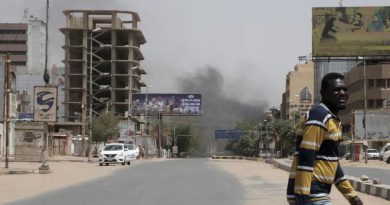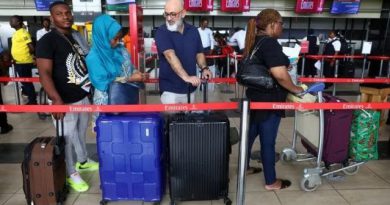Myanmar security forces kill 15 protesters, junta leader says opposition aims to “destroy” country
Yangon (Reuters) – Troops in Myanmar opened fire on pro-democracy protesters on Wednesday, killing at least 15 people and wounding dozens, the latest victims of a campaign to crush opposition to the ruling military junta, activists and media said.
Senior General Min Aung Hlaing, leader of the army coup that ousted Myanmar’s elected government on Feb. 1, said the civil disobedience movement’s aim was “to destroy” the country.
But a London-based research group said the military was losing control.
In other unrest, a series of small blasts hit the commercial capital Yangon and a Chinese-owned factory was set on fire.
About 600 civilians have been killed by security forces in the turmoil since the coup, according to an activist group. Nationwide protests and strikes have persisted despite the bloodshed.
The military was now focusing its crackdown on rural areas, the Assistance Association for Political Prisoners (AAPP) said on Wednesday.
In the northwestern town of Kale, security forces fired live rounds, grenades, and machineguns on protesters who were demanding the restoration of Aung San Suu Kyi’s government, AAPP said. At least 8 people were killed, it said.
They also raided houses and community clinics, AAPP said.
A local resident and the Myanmar Now news outlet said 11 people were killed and several wounded. AAPP also reported two other fatalities in townships in Sagaiang region.
Two protesters were also killed in the town of Bago near Yangon, Myanmar Now and AAPP said.
Reuters could not independently verify the toll.
AAPP also reported clashes in Karen state between the army and insurgents of the Karen National Liberation Army, which has been waging war against the government for decades. One villager was killed, it said.
At least seven small explosions were heard in Yangon, including at government buildings, a military hospital and a shopping mall, residents said. There were no casualties and no claims of responsibility.
The U.S. Embassy in Yangon said it had received reports of “handmade ‘sound bombs,’ or fireworks meant to create noise and cause minimal damage”.
A fire broke out in the Chinese-owned JOC Garment Factory in Yangon on Wednesday, the Fire Department said. There were no reports of casualties and no details on the extent of damage.
In another Yangon neighbourhood, activists set fire to the Chinese flag, according to pictures posted on Facebook.
China is viewed as being supportive of the military junta and last month arson attacks were made on 32 Chinese-invested factories in Yangon.
Details of the blasts and the fire were difficult to obtain because of the junta’s curbs on broadband internet and mobile data services.
A spokesman for the junta could not be reached for comment.
Destroy the Company
Min Aung Hlaing, who heads the junta, said in a statement the civil disobedience movement, or CDM, had halted the working of hospitals, schools, roads, offices and factories.
“CDM is an activity to destroy the country,” he said.
Fitch Solutions said in a report that Western sanctions targetting the miitary were unlikely to succeed in restoring democracy.
It predicted a violent revolution pitting the military against an armed opposition comprised of members of the anti-coup movement and ethnic militias.
“The escalating violence on civilians and ethnic militias show that the Tatmadaw (military) is increasingly losing control of the country,” it said.
The vast majority of people backed Suu Kyi’s ousted government, it added.
AAPP said that as of Wednesday, 598 people had been killed by the security forces since the coup. The authorities are also holding 2,847 people in detention, it said.
Among those detained are Suu Kyi and leading figures in her National League for Democracy party, which won an election in November that was anulled by the coup.
In Jakarta, Indonesia’s Foreign Minister Retno Marsudi and British Foreign Secretary Dominic Raab discussed how Britain and other foreign governments could support a Southeast Asian effort to resolve the crisis in Myanmar.
Indonesia is among several Southeast Asian countries leading a push for high-level talks on Myanmar.
The United Nations’ special envoy for Myanmar, Christine Schraner Burgener, hopes to visit the country in the next few days, a U.N. spokesman said in New York.
Thailand, Myanmar’s neighbour and which has close military ties with the junta, said on Wednesday it did not agree with the violence but the problem had to be addressed carefully.
“We cannot really do what we want because we have shared borders and we need to live and rely on each other on many areas,” said Thai Prime Minister Prayuth Chan-ocha, who had himself seized power in a 2014 coup when army chief, before taking on his current civilian role in 2019.



